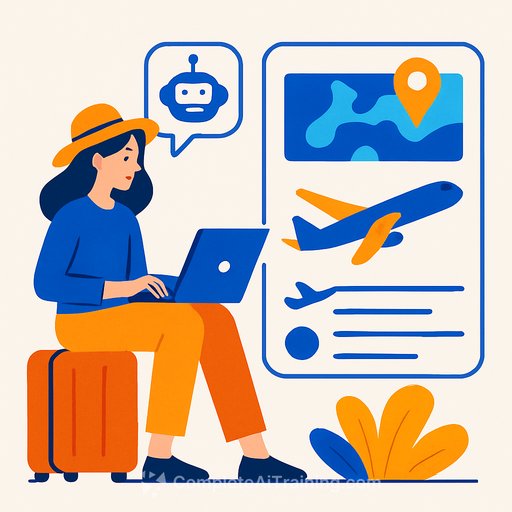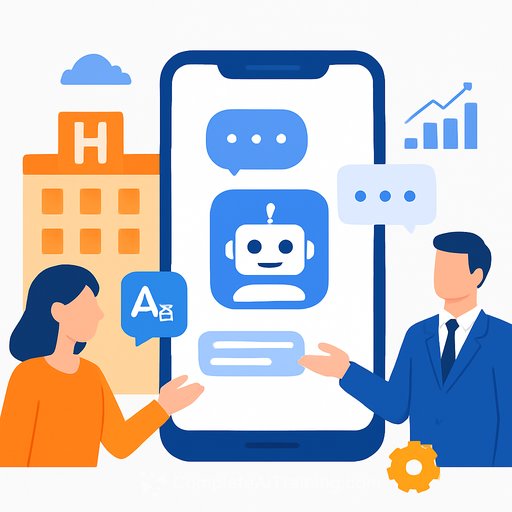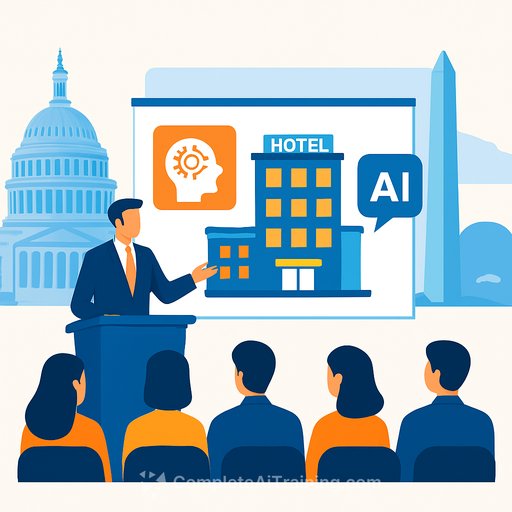The Rise of AI in Travel Planning
“Just ask ChatGPT!” is becoming as common a phrase as “Google it”. While AI may not replace professionals like doctors or therapists, it’s proving invaluable for planning trips—whether it’s choosing routes, picking dishes at a restaurant, or listing must-visit spots. Research shows that 52% of travellers in the UAE and 50% in Saudi Arabia have already used AI to plan holidays. Looking forward, 77% in both countries are likely to use AI for travel planning.
The influence is clear: 93% of UK travellers, 92% in France, and 95% in the UAE and Saudi Arabia say AI impacts their decisions on destinations, accommodations, and transport. But what does this mean for travel and hospitality professionals adapting to this technology?
Google’s New AI Travel Tools
Google launched AI tools earlier this year aiming to simplify travel planning. These tools help travellers and businesses make smarter decisions and manage trips more efficiently.
Ctrl, Alt, Retreat
In 2026, David and Christina, remote IT professionals from Dallas, planned a two-month trip through Asia, including a week at Kopan Monastery, a Buddhist temple near Boudhanath. They found this spot by feeding their rough itinerary and preferences into ChatGPT. Christina wanted slow, intentional days focused on Buddhism, and AI suggested Kopan, which they embraced.
Are We There Yet, or Is AI Making This Up Too?
Initial hype around AI led many to try it superficially, but the trend is shifting. AI is solving choice overload by acting like a personal travel concierge, delivering recommendations based on preferences, budget, loyalty status, and real-time local event data.
Skyscanner, which has helped travellers find destinations for 17 years, now uses AI to inspire travellers without specific plans. Half of their global users search without a set destination, making AI a useful tool for trip inspiration.
How AI is Impacting Hospitality
Personalised service defines great hotels, and many are using AI as a tool to enhance—not replace—the human touch. At Shangri-La Bengaluru, AI tools like SevenRooms and TotalEngage help track guest dining preferences and consolidate feedback to deliver timely, custom communication, all on an opt-in basis.
Kandima Maldives uses a 24/7 virtual concierge chatbot with a 95% understanding rate to handle guest inquiries instantly, improving convenience while prioritising data privacy. The hotel teams stay alert to technical issues to maintain guest satisfaction.
No major hotels currently replace human interaction with AI chatbots, but AI-generated videos offer a new way to maintain warmth and connection when face-to-face isn’t possible. One Indian hotel brand saw a 12% boost in loyalty redemptions using personalised AI video messages.
Are AI Tools Outpacing Traditional Search Platforms?
Many AI tools remain behind the scenes, but consumer-facing AI solutions from agencies and aggregators are rising. Booking.com, for example, has used AI and machine learning for over ten years to personalise travel experiences.
Their AI Trip Planner, available in several countries, provides curated itineraries and real-time support powered by ChatGPT. Features such as Smart Filter, property Q&A, and automated chatbots speed up planning and tailor it to individual travellers.
A New Colleague for Travel Agents?
Travel operators handle many requests and the demand for personalisation. AI supports them by analyzing past preferences, trends, and even micro-seasonal data to build highly customised itineraries. It speeds up proposal creation, freeing teams to focus on creative details.
Multi-day trip planning remains complex due to many variables—group dynamics, meals, activity levels, rest, and trip flow. AI assists best with structured inputs and nuanced context, helping internal teams handle repetitive tasks and maintain consistency.
Conclusion
In luxury travel, AI doesn’t replace human intuition, empathy, and local knowledge. Instead, it supports smarter work and elevates personalised service. AI can help book that airline with your favourite meal or let your hotel know your spa preferences after a long flight. For hospitality professionals, understanding and integrating AI tools can enhance guest experiences without losing the human touch.
For those in hospitality and events looking to deepen their AI expertise, exploring practical courses can be valuable. Platforms like Complete AI Training offer tailored programs to help professionals adapt and thrive with AI technologies.
Your membership also unlocks:






